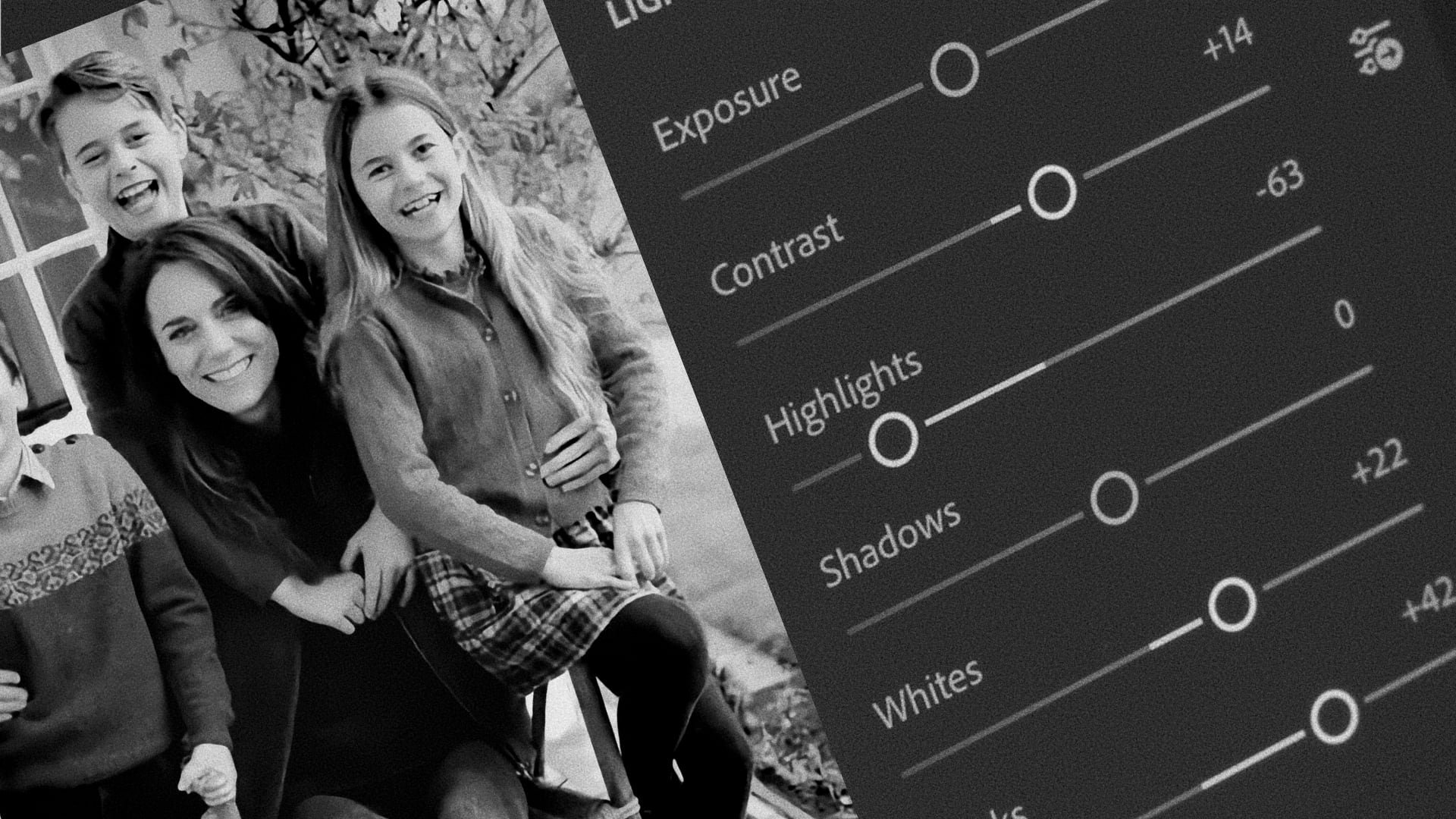If everyone is curating a fake life for strangers on the internet, how can we tell what’s real?
Catherine’s image manipulation was no great crime, and no surprise in an atmosphere where millions curate a fake version of themselves.
There is nothing new about photo manipulation. More than a-hundred years ago a set of fake images convinced people that fairies are real, while a mid-19th Century portrait of Abraham Lincoln put his head on top of someone else’s body.
What is new is the ease with which anybody can change an image to curate their own reality. The smartphone in your pocket will happily cater to your vanity, creating an airbrushed image of digital perfection. Is it really surprising that a woman who grew up in this environment tried a little bit of amateur photoshopping? Even if that woman is the Princess of Wales?
The decision to release a Mother’s Day snap of Catherine and her three children seemed to be a response to weeks of online speculation. “Where’s Kate?” asked any number of ill-informed conspiracy theorists, ignoring the obvious answer: “recovering from the major surgery we told you she was having.”
News agencies had no alternative to pulling the photo, having distributed the picture and implicitly put their reputations behind what turned out to be a manipulated image.
When anyone can create a half-way convincing fake image, whether it’s a touched-up family portrait or a fraudulent shot of a US presidential candidate, the only way to preserve trust is enforce tough rules, even for the most trivial of images.
But does that really mean Catherine deserves to be pilloried for submitting to the same societal pressures that drive so many to present a “better-than-real” version of themselves to the outside world?
We want the royals to be “just like us” but we also want them to be different and special. It’s hardly surprising if that pressure leads to a little sub-standard photoshopping. Why would Catherine think there’s anything wrong with that, when we expect every celebrity photo we see to be perfect?
The newest Google Pixel phone includes AI features that allow you to change the facial expressions of the people in your pictures. Can’t get your kids to all look at the camera and smile? Don’t worry, just let the phone put their best smiles together in one happy, fake, photograph.
Does it really matter if the end result is a better family portrait? Maybe not, but if we’re all constantly sharing idealised versions of our lives, how do we reconcile that with our less-than-perfect reality? What kind of psychological pressures will build if we convince ourselves we’re now obliged to put a permanent filter on our public lives.
If it starts to normalise fakery, if it becomes OK to create images of how you wish the world was rather than how it really is, what’s to stop politicians or the military doing the same? How, in that case, can we know what is real?
